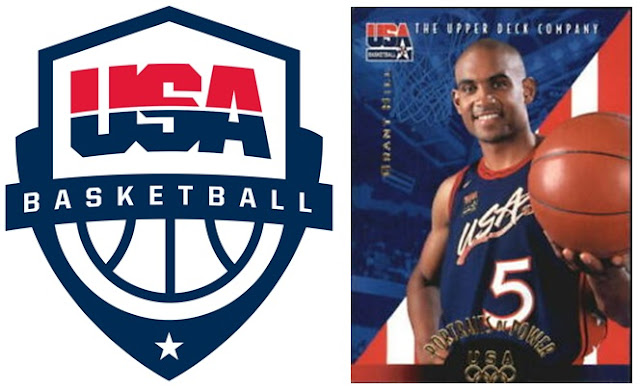FIBA: Women’s World Cup qualification tournaments a farce, need better format and competition
By ALAN WALLS
Welcome to The International Basketball Opinion, the world’s only blog specifically dedicated to international basketball news, business and current events.
I’m back…
Christmas, New Year’s, COVID, 5-year-old son, work, life… but I am finally back! And with a vengeance. I will attempt to rip off three blog entries back-to-back-to-back.
Three-peat if you will, to quote the great Pat Riley.
I need to keep them short (somewhat) and to the point in order to get through them.
Here we go…
In February, the 2022 FIBA Women’s World Cup (WC), which will be hosted by Australia, qualifying tournaments took place in:
- Belgrade, Serbia (2 tournaments)
- Osaka, Japan
- Washington DC, USA
16 team competed for 12 spots in the 2022 WC. Only 12? you ask. Read my take on that here!
Each tournament (group) consisted of four (un)competitively balanced teams playing each other in a round-robin format to then only eliminate one team. The four groups were headed by:
- USA (automatic WC qualifier as 2020 Olympic Games champions and defending WC champions)
- Australia (automatic WC qualifier as host)
- Japan (2021 Asia Cup champions)
- Serbia (2021 EuroBasket champions)
My question is, why spend so much money (FIBA and the federations), resources, time and effort of the players and coaches to host, stage and play in four qualifying events only to eliminate one team in each event, a team everyone already knows is going to be eliminated?
In three (would have been all four) of the four tournaments, the lowest ranked of the four team was eliminated:
- Belarus (Ranked #11 at the time)
- Did not participate due to COVID allowing #27 Bosnia and Herzegovina to automatically advance.
- Had BLR participated, (almost) surely BIH would have been eliminated.
- Brazil (17)
- Puerto Rico (18)
- Mali (40)
The results of the tournaments and WC field were basically set before the qualifying tournaments even took place. A farce. The favorites in each group dominated as well.
The 12 qualifying teams are (alphabetical order):
- Australia
- Belgium
- Bosnia and Herzegovina
- Canada
- China
- France
- Japan
- Korea
- Nigeria
- Russia
- Serbia
- USA
Another question is, why have the two automatic qualifiers (USA and AUS) competing in the same groups with other countries that are trying to qualify?
I know the answer from FIBA is to get them some game action, but there is a much better way to do this, a much more fair and competitive way as well.
MY SOLUTION
First:
- Automatically qualify four teams to the next WC:
- Olympic Games champion and/or
- Host, if not OG winner
- AmeriCup winner if not OG winner
- EuroBasket winner if not OG winner
- Asia Cup winner if not OG winner
- Place these four teams in an ultra-competitive Group A.
- Play to determine the WC seeding 1-4.
- All four teams involved would get great competition leading up to the WC that would be well worth their time and effort to participate.
- Great way to promote the upcoming WC, a preview if you will.
- Group A would have been:
- USA (1, OG winner)
- Australia (3, host)
- Japan (8, Asia Cup winner)
- Serbia (10, EuroBasket winner)
On a sidenote, if you are wondering why one is called the Asia Cup (as well as AmeriCup) and the other is called EuroBasket (and AfroBasket) read here. I don’t understand either.
Then:
- Automatically qualify the next four best ranked teams as well to form Group B.
- Another extremely competitive group.
- Play to determine the WC seeding 5-8.
- Group B would have been:
- Canada (4)
- France (5)
- Belgium (6)
- China (7)
Groups A and B combined would involve eight of the top 10 ranked teams at that time. Talk about the highest levels of competition and excitement!
Now, here is where the real magic happens to determine the last four teams in a super-competitive fashion:
- Two truly competitively balanced groups (C and D).
- Only the top two teams from each group qualify for the WC.
- Two teams in each group are eliminated, not just one.
- Much less of a guarantee who will qualify.
- Much more competitive games all around.
- A lot more fan interest and drama!
Group C:
- Belarus (11)
- Until they pulled out.
- Maybe Spain (2) could have been invited to replace them at the last minute as an opportunity to make up for their poor 7th place showing at the EuroBasket.
- Nigeria (15)
- Brazil (17)
- Mali (40)
- Russia (12)
- Korea (14)
- Puerto Rico (18)
- Bosnia and Herzegovina (27)
This is no different really than what FIBA Asia does with the women’s Asia Cup where the top five teams compete in Group A and the five lesser teams compete in Group B.
FIBA, you can do better.
-------------
Author Alan Walls, the current Malta men’s head national team coach, is an American international basketball coach and administrator with over 28 years of experience on the youth, high school, NCAA, professional and national team levels in 16 countries and on five continents. Walls has worked with the national federations of Turkey, Romania, Palestine, Mongolia, Kenya and El Salvador as well as coached or conducted camps and clinics throughout the United States – including his native Hawai’i – Mexico, Costa Rica, Argentina, China, Hong Kong and Israel. Walls is the founder and Secretary-General of the United Nations of Basketball (2020 launch), founder and President of the International Basketball Union (2021 launch), founder and Editor in Chief of The HoopVine (2022 launch) and founder of the soon-to-be-launched 3x3HQ.com.




I am Agent Smith, a personal agent at; MIAMI HEAT BASKETBALL TEAM. We are looking for young basketball players. I have been charged with the task of searching for talents to make super stars. Do you want to be a basketballer, do you want to be rich and famous? Do you want to be a super and mega star with influence and with respect, then this is your opportunity to be one. We are searching for young and potential talents to make world class stars to take the team to the next and higher level. Contact us now on; Agentofmiamiheat@gmail.com
ReplyDeleteInteresting take highlighting how the 2022 FIBA Women's World Cup qualifiers became almost a farce because only 12 of 16 teams advanced really underscores the need for better competition. It’s a reminder that in football, too, even top-tier football players can’t shine when the format stifles true competitiveness.
ReplyDelete